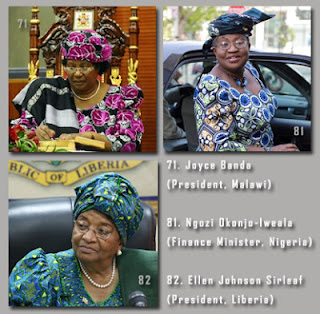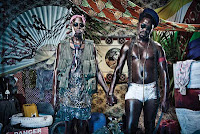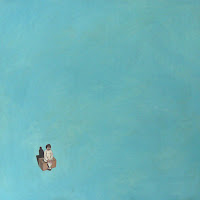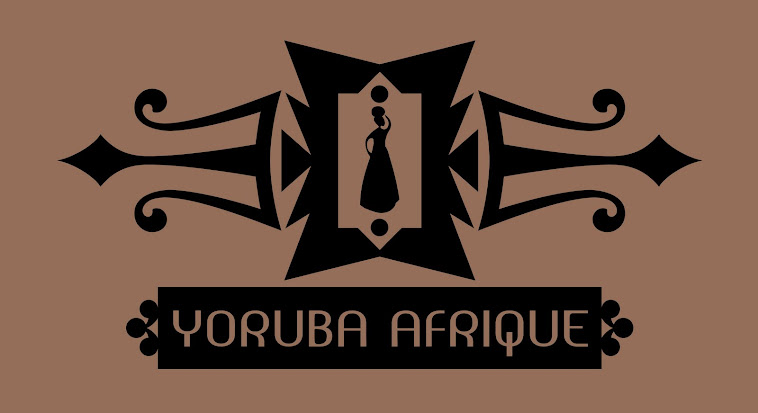Tuesday, November 27, 2012
Tuesday, November 13, 2012
we're Royalty man!
…I immediately imagine many cringing at the thought of
African aristocratic rulers. A friend of mine paints a mental picture of an old dark-hued
man with a bulky belly, sitting on a gold-carved armchair flaunting his riches
and indulging in his polygamist ways.
For many, they can’t comprehend an African king that’s progressive and relevant in a society that’s grappling with poverty and preventable diseases.
Well…meet Kgosi Leruo Tshekedi Molotlegi, the current King of the Bafokeng Nation located in the Rustenburg Valley (North West province, South Africa).
The
Bafokeng nation is inclusive of 29 villages that boast some of the most innovative
approaches to sustainable development in Africa.
For many, they can’t comprehend an African king that’s progressive and relevant in a society that’s grappling with poverty and preventable diseases.
Well…meet Kgosi Leruo Tshekedi Molotlegi, the current King of the Bafokeng Nation located in the Rustenburg Valley (North West province, South Africa).
 |
| Kgosi Leruo Tshekedi Molotlegi (36threcorded king) |
Let me put you in the picture –
The Bafokeng nation’s land overlies a valuable portion of the Bushveld Complex,
the richest know reserve of platinum group metals and chrome in the world. In
the 19thcentury upon contact with Europeans visionary predecessors
(Kgosi Leruo’s ancestors) ensured that the communally held land survived white
rule.
 |
| Royal Bafokeng Hotel |
Today this African community led by Kgosi Leruo benefits from these professional structures; Royal Bafokeng
Holdings (Manages the Bafokeng investment portfolio), Royal Bafokeng Sports
(Oversees commercial and developmental sporting programmes), Royal Bafokeng
Enterprise Development (Supports and incubates SMMEs), Royal Bafokeng Institute
(Education reform, vocational training and leadership development) and the Royal
Bafokeng Administration (Provides infrastructure and social services to the
community).
 |
| Lebone College |
 |
| Lebone College classroom |
Transparency and accountability is kept in check by the
Bafokeng Supreme Council made up of hereditary headmen and elected women and
men who form the traditional legislature and abide by Bafokeng customary law
and the South African Constitution.
Continuing the legacy inherited
from their ancestors the Bafokeng Nation has formulated a development mission
that will diversify its economic investments and infrastructural development. You
have to see this (http://www.bafokeng.com/future/masterplan)
 |
| Royal Bafokeng Nation Masterplan
“The comprehensive plan makes provision
for the population more than doubling…Importantly, Masterplan has not been
drawn up in isolation. On the contrary, at a regional level it has been
designed…At a macro level it accords with the vision and spirit of the New
Partnership for Africa’s Development (NEPAD).”
(Kgosi Leruo Tshekedi Molotlegi, Royal Bafokeng Nation Masterplan on Target for 2035, Pg. 3)
Sources: http://www.bafokeng.com , http://www.bafokengholdings.com, http://www.bafokengplatinum.co.za/
, http://www.bafokengsportscampus.co.za/
, http://www.lebonecollege.co.za/
My Queen of Sheba feature for this post – 3 inspiring African women
A gargantuan African drum beat to
these 3 women who were selected in the Forbes 100 Most Powerful Women

Source: www.forbes.com/powerwomen
|
Monday, November 12, 2012
Thursday, September 13, 2012
Write what you like.
People may
die but their ideologies will live.
 |
| voyagesphotosmanu.com |
Heart-shaped
Africa is the feeling centre of the world.
Continents
are metaphors.
A people are
spiritual states of humanity as distinguishable in what they represent as
roses, lions, and stars.
Have we
forgotten what Africa is?
Africa is
our dreamland, our spiritual homeland.
There is a
realm in everyone that is Africa. We all have an Africa within.
When the
Africa outside is sick with troubles, the Africa inside makes us sick with
neuroses.
Inexplicable
psychic illness in the world is possibly, indirectly, connected to the troubles
in Africa.
We have to
heal the Africa in us if we are going to be whole again.
An extract from Ben Okri’s book – A time for new dreams
Last night at the University of Cape Town Ben Okri delivered an honourable 13th
Steve Biko memorial lecture – here’s to technology…
check out the video
Monday, September 3, 2012
We see You!
In August South Africa celebrated Women’s Month. Memoirs of
1956 were recaptured all around us and not to keep you in the history web, I'll fast foward to 2012...
If you don’t know Ory Okolloh, I’ve got one word for you – Google!
 |
| Ory Okolloh |
I attended a conference where one of the main speakers was
Victor Dlamini (a thought leader of our times); he spoke
about Africans making a conscious choice of producing home-grown
solutions and content. It made me think of how much I struggle with ‘aunthetic’
content when researching African culture as in most instances it's compiled in a third person’s
perspective.
I started following Ory on Twitter
(@kenyanpundit) last year after I read about Ushahidi.com and
Mzalendo.com which she co-founded. This Kenyan born change-maker is
Google’s Policy Advisor for Africa who graduated from Harvard Law School. One
of her goals is to explore ways to get Africans reading about Africans, and for
Africa to reach internet usage levels comparable to that of the Western world.
One of her greatest challenges I reckon is lobbying African governments to
invest in infrastructure that will ensure accessibility of w.w.w in the
continent.
 |
| Ory Okolloh |
“The internet needs to be treated as an infrastructure. It’s
a core, as critical as electricity, water or roads in terms of a growing economy.” –Ory Okolloh, Forbes
Africa magazine (Aug. 2012 Issue)
Think about it...because you have access to the internet, you have
access to the world. You can start an online business with minimal capital
compared to the conventional ‘brick and mortar’ business. Imagine the
possibilities of women in rural villages trading with the rest of the
world and Africa having it’s own PayPal.
ORY, WE SEE YOU!
While task teams and commissions of enquiries are being
launched by our governments, citizens are developing sustainable solutions and Ola
Orekunrin is one of these citizens...
 |
| Ola Orekunrin |
In 2009 Ola founded Flying Doctors in Nigeria. Born in the UK she graduated in Medicine at the age of 21. Confronted with a tragic encounter of losing her little sister while she was on holiday in Nigeria due to a heart attack that could have been avoided if she had received medical help timeously, she decided to sell her car, her house and her medical training business to raise capital to start Flying Doctors. Ola booked a one-way ticket to Nigeria and today the company has 10 on-call doctors, administrators, a helicopter and jet.
OLA, WE SEE YOU!
My Mariam Makeba feature for this post - Nomsa Mazwai
A Fulbright scholar (recently completed her Masters in
Economics), winner of a South African Music Award and currently in the IPED (International Political Economic & Development)
program at Fordam University in New York, she's a catalyst for social change. She continuously expresses her love
for her country and how she can’t wait to contribute positively to her native continent. |
| Nomsa Mazwai |
To all Women in the world – “Let the habit of excellence drive you.”
I dedicate this post to all Africans in diaspora who
contribute positively to their native continent and plan to return and assist
the with advancement of Africa …We
see You!
RIP – Zenzile Mariam Makeba
Wednesday, June 6, 2012
Beyond the Paint Brush
Happy belated Africa Day!
Although this post is long overdue I find it rather ironic that I post it during a time of hostile debates on the role of art and galleries in a democratic state.
A Brent Murray artpiece depicted an image of the current South African president with his genitals exposed, igniting emotionally heightened conversations in all stratums of South African society.
This post is to celebrate my favourite artist and mention other great artists. I love Sam Nhlengethwa’s work and I also have a great appreciation for William Kentridge (SA) and Kay Hassan (SA).
And recently I’ve discovered Mary Sibande (SA), Kudzanai Chuirai (Zimbabwe), Sandra Hanekom (SA), Portus Ojomo (Nigeria) and Mbongeni Buthelezi (SA).
 |
| Mary Sibande - Queen Sophie |
 |
| Kudzanai Chuirai - State of the Nation series |
 |
| Sandra Hanekom - Harthuis I |
 |
| Portus Ojomo - Sea Goddess |
 |
| Mbongeni Buthelezi - Untitled |
Sam Nhlengethwa’s paintings capture the essence of South Africa’s subconscious existence without being abrasive.
“Sam’s work is always filled with energy, provenance and a sense of warmth”, says Sarah Buitendach (House & Leisure, Feb. 2011) - absolutely!
I have not been privileged to see majority of his work (not yet, atleast) however I must attest that I'm currently obsessed with the mine workers|mine trip series.
 |
| Sam Nhlengethwa - Inside the Cage |
 |
| Sam Nhlengethwa at his Benoni home |
I love how he has chosen to have Marco Cianfanelli’s sculpture next to the painting -great conversation there.
Before I knew about the above mentioned artists I've always walked the streets of our cities and have adored amazing artworks (painting), and still do. I say this because I acknowledge and recognize that there are so many great artists in Africa whose artwork may not be in galleries and commercial public platforms hence we need to build more galleries and encourage a culture of Africans collecting art. With the latter being said I hope that all my future posts that pertain to art will include ‘unknown’ artists from all-over Africa. –Can’t Wait!
My Esther Mahlangu feature for this post –Thandi Sibisi
My Esther Mahlangu feature for this post –Thandi Sibisi
 |
| Thandi Sibisi at the gallery opening |
16 February 2012, Thandi Sibisi made her way to the history books of South Africa as the first black female gallery owner. At the age of 25, she opened the doors of SIBISI gallery in the uber Melrose Arch precinct. On a personal level I believe it’s quite an outstanding honour for all African females as we still face numerous challenges, some countries more complex than others.
Born in KwaZulu Natal midlands to cattle farmers, she had never seen a double-storey building until she arrived in Johannesburg at the age of 17, 8 years ago. She should be an inspiration to many young and old individuals
Born in KwaZulu Natal midlands to cattle farmers, she had never seen a double-storey building until she arrived in Johannesburg at the age of 17, 8 years ago. She should be an inspiration to many young and old individuals
…And did I say…she has the most stylish penthouse in Johannesburg's CBD (Newtown) and a wardrobe every girl dreams of. On the opening night she wore a designer dress with a colossal isicholo -traditional Zulu hat, a great tribute to her culture.
“Color is a means of communications because it is a language that is understood around the world” - Emmanuel Mawuko Arkutu, Ghana
Wednesday, January 4, 2012
Happy New Year & believe this - Black is Beautiful!
It's a new year, let’s celebrate and embrace the year ahead!
Did you know:
“Black is beautiful is a cultural movement that began in the United States of America in the 1960s by African Americans. It later spread to much of the black world, most prominently in the writings of the Black Consciousness Movement of Steve Biko in South Africa. It aims to dispel the notion in many world cultures that black people's natural features such as skin color, facial features and hair are inherently ugly. John Sweat Rock was long thought to be the first to coin the phrase "black is beautiful"–during a speech in 1858–but historical records indicate he never actually used the specific phrase on that day. The movement also encouraged men and women to stop trying to eliminate African-identified traits by straightening their hair and attempting to lighten or bleach their skin.
This movement began in an effort to counteract the prevailing idea in American culture that features typical of "Blacks" were less attractive or desirable than those of "Whites". Research indicates that the idea of "blackness" being ugly is highly damaging to the psyche of African Americans, manifesting itself as internalized racism. This idea made its way into Black communities themselves and lead to practices such as paper bag parties: social events which discriminated against dark-skinned African-Americans by only admitting lighter-skinned individuals.” [http://en.wikipedia.org/wiki/Black_is_beautiful]
I could go on & on...
Thanks to the ever glowing Zimbini Mpangele she inspired this post - she looked so stunning on New Year’s Eve that I wanted to remind the whole world that Black is indeed Beautiful!
“Black is beautiful is a cultural movement that began in the United States of America in the 1960s by African Americans. It later spread to much of the black world, most prominently in the writings of the Black Consciousness Movement of Steve Biko in South Africa. It aims to dispel the notion in many world cultures that black people's natural features such as skin color, facial features and hair are inherently ugly. John Sweat Rock was long thought to be the first to coin the phrase "black is beautiful"–during a speech in 1858–but historical records indicate he never actually used the specific phrase on that day. The movement also encouraged men and women to stop trying to eliminate African-identified traits by straightening their hair and attempting to lighten or bleach their skin.
This movement began in an effort to counteract the prevailing idea in American culture that features typical of "Blacks" were less attractive or desirable than those of "Whites". Research indicates that the idea of "blackness" being ugly is highly damaging to the psyche of African Americans, manifesting itself as internalized racism. This idea made its way into Black communities themselves and lead to practices such as paper bag parties: social events which discriminated against dark-skinned African-Americans by only admitting lighter-skinned individuals.” [http://en.wikipedia.org/wiki/Black_is_beautiful]
image sources: http://africancreature.tumblr.com; http://ivyleaguefro.tumblr.com; http://queennubian.tumblr.com; http://deefairy4u.tumblr.com
- check them out - "africans on steroids" -love them-
I could go on & on...
Subscribe to:
Posts (Atom)
























